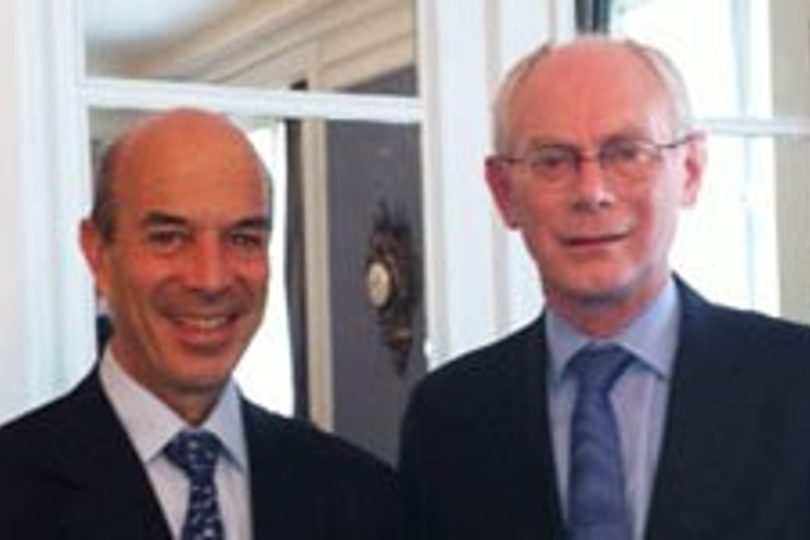
Marine Le Pen’s unexpected result in the weekend’s French election is symbolic of a growing anti-migration, Eurosceptic, anti-globalisation mood in parts of Europe. Campaigning to pull France out of the euro zone, to heavily reduce immigration and to leave Europe’s iconic passport free zone, Le Pen’s Front National party secured almost 20% of the vote – a record for the party and a reflection of a deeper disillusion with the major parties in France.
It is a difficult time to be a leader in Europe. Since the start of the Euro crisis in 2009, 10 European leaders have been swept from office. There are at least eight elections in Europe this year where, just as in France, the results are far from certain.
Professor Ian Goldin, Director of the Oxford Martin School, and I visited Brussels on Friday April 20th to discuss such issues as migration, globalisation and systemic risk with leading figures of the European Commission and the European Council. Europe is clearly at a critical crossroad. The acceleration of integration has brought many benefits, but it has also created fragility though increased vulnerability and exposure to shocks, such as the financial crisis.
Such issues were hot topics of discussion at a high level lunch, hosted by the President of the European Council, His Excellency Herman van Rompuy. Whilst concerns of governance gaps, short-termism and inequality featured strongly, Herman van Rompuy remained optimistic about the ability of European leaders to take the tough decisions needed.
Sharing a deep common interest in migration policy, we met with the impressive European Commissioner Cecilia Malmström, who is responsible for Home Affairs. Malmström has the unenviable task of trying to push forward a united approach to migration across the EU and is also responsible for cybersecurity – an area of increasing focus in the Oxford Martin School.
It was also extremely useful to meet with John Bell, Head of Cabinet in the office of Commissioner Marie Geoghegan-Quinn, where we swapped valuable notes on interdisciplinary research around global challenges and identified some promising areas of potential collaboration between our organisations. The Commission has committed €80 billion to research and innovation through their Horizon 2020 programme between 2014 and 2020 so it is an opportune time to reflect on how best to foster interdisciplinarity as well as ensuring that this research feeds directly into future policy direction in Europe and beyond.
Whilst the ‘European project’ may be under threat from the tensions encapsulated in the French election, it was impressive to meet such passionate and committed leaders who are so dedicated to maximising the benefits of European integration. Whilst this is our first visit to Brussels this year, I suspect that we’ll be more frequent Eurostar travellers. Whether on issues of migration, globalisation, cybersecurity or systemic risk, there are many exciting areas for collaboration with the European Commission going forward.
Pictured are President of the European Council, His Excellency Herman van Rompuy (right), with Professor Ian Goldin
Natalie used to be Head of Policy at the Oxford Martin School. She is now Head of Strategy and Communications at SPRU.
This opinion piece reflects the views of the author, and does not necessarily reflect the position of the Oxford Martin School or the University of Oxford. Any errors or omissions are those of the author.